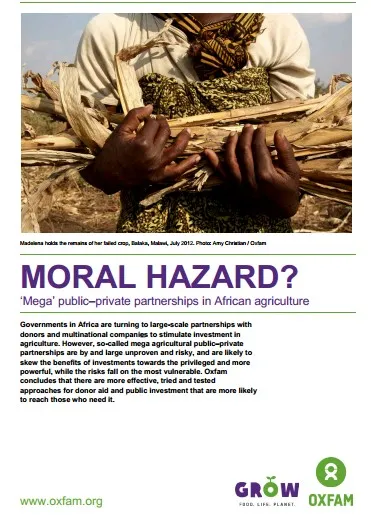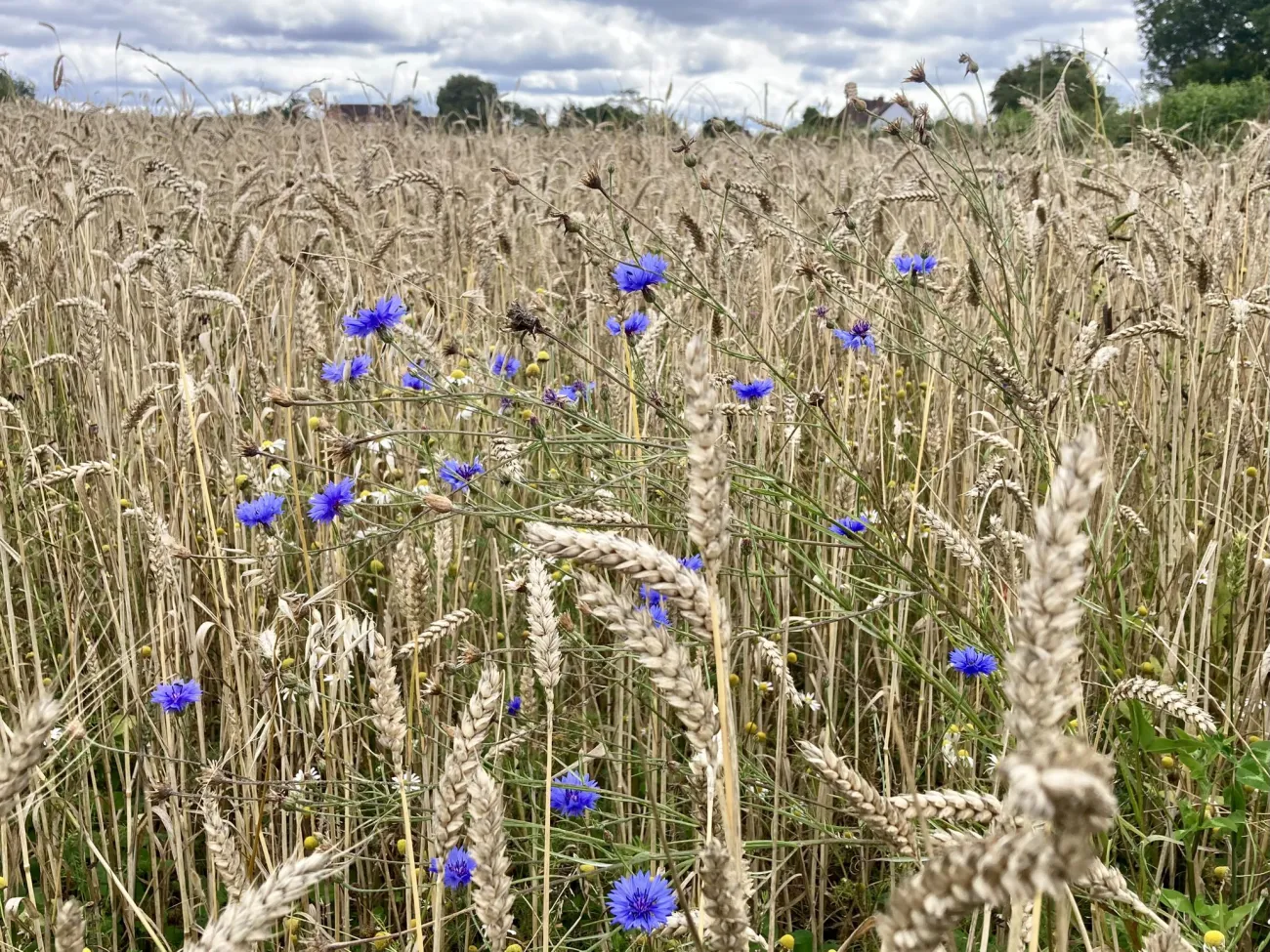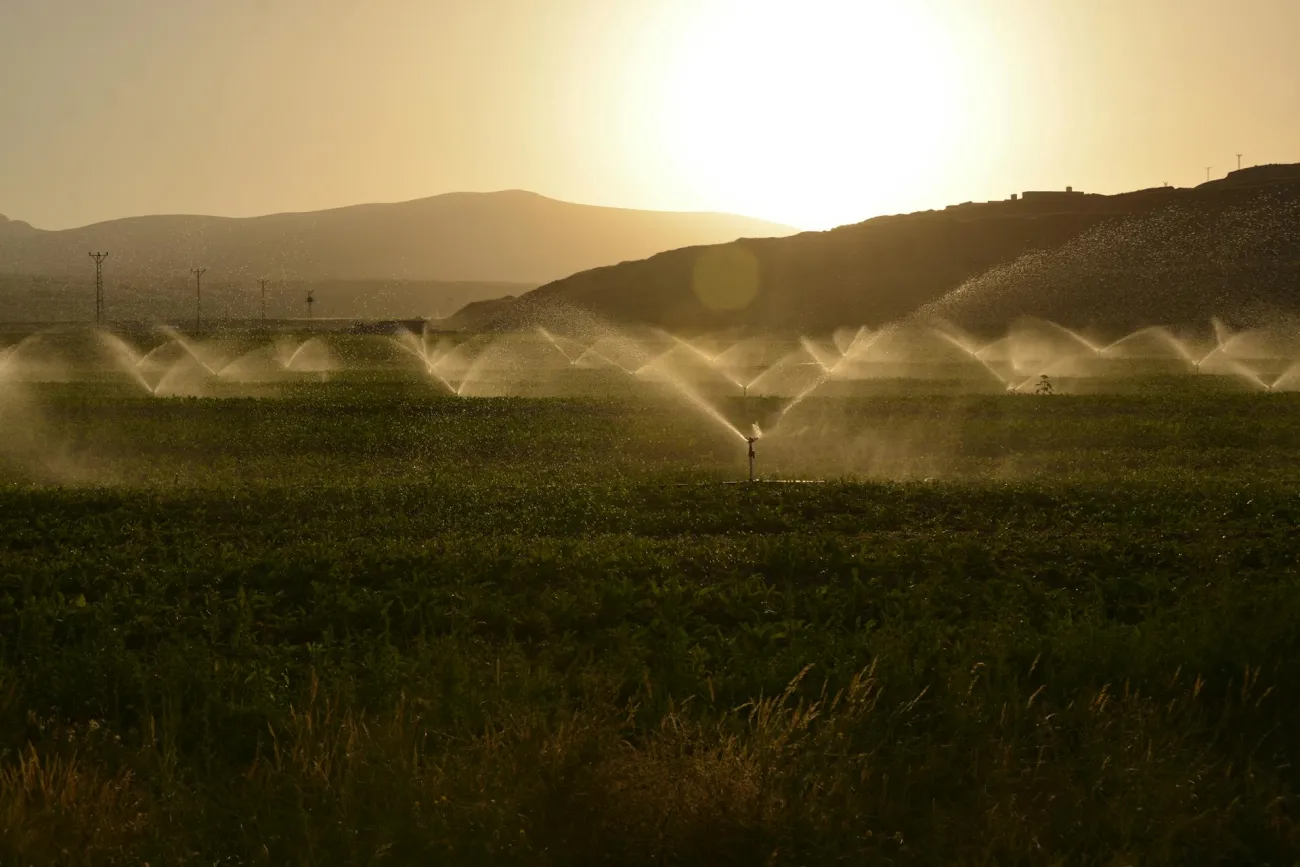This report from Oxfam discusses large-scale partnerships between governments in Africa and donors and multinational companies. “Moral Hazard? ‘Mega’ public–private partnerships in African agriculture” is as the name suggests critical of these partnerships (PPP) and questions whether these partnerships lead to poverty eradication and improved rural livelihoods. The report argues that this way of mobilizing funds for the agricultural sector is often unproven and risky.

It also argues that the benefits of the investments are more likely skewed to the already privileged.
Oxfam takes the example of the G8’s New Alliance for Food Security and Nutrition and growth corridor programme to emphasise that legislative and policy changes are often implemented to incentivize private sector investment. Oxfam emphasises that they are not critical of large-scale agriculture or even private investments in agriculture but rather whether such mega-PPPs should be a priority focus for overseas development assistance (ODA) spending by donors or for valuable public funds earmarked for agricultural investment by national governments. Oxfam concludes that there are more effective, tried and tested approaches for donor aid and public investment that are more likely to reach those who need it.
The report is based on an extensive literature review, key informant interviews and three case studies in Burkina Faso, Malawi and Tanzania and it gives 5 key recommendations as well as suggested principles for partnerships including Governance and process, Disclosure and Monitoring and evaluation.
Recommendations
1. Governments and donors should revitalize public investment in African agriculture targeted at the needs of small-scale producers and women. This represents a proven policy to meet poverty and food security goals through agriculture and at lower risk than mega-PPP investment models.
2. Governments and donors should ensure that land legislation and policies are in place to protect the land rights of local communities prior to the initiation of any large-scale investment programme, through mega-PPP models or otherwise. Such policies can also encourage small-scale producers to invest in agricultural activities themselves and realize food security objectives.
3. Governments and donors should aim to unlock the potential of domestic and regional markets, and local small-and medium sized enterprises to deliver for African agriculture. In addition, mega-PPPs should not be supported where they might stifle competition or support the creation of monopoly or monopsony positions in the market.
4. Governments, donors and companies should ensure that any agricultural investment builds, rather than undermines, the climate and environmental resilience of local communities. This agenda should include a strong analysis of the opportunity cost of the use of land and water through large-scale agricultural investment initiatives.
5. The sponsors of current mega-PPP projects urgently need to revisit the fairness, transparency and accountability of these arrangements. These reforms should also aim to mitigate the ‘moral hazard’ in project design, meet the needs of local communities, and ensure a fair sharing of risks and benefits.
Citation
Moral Hazard? ‘Mega’ public–private partnerships in African agriculture, 2014, Oxfam,
Read the full report here.
You can also read more in the land grabs section of our Research Library and a specific report by the International Land Coalition (ILC) on the subject. You can also use the search words Land grabbing on the website.




Comments (0)